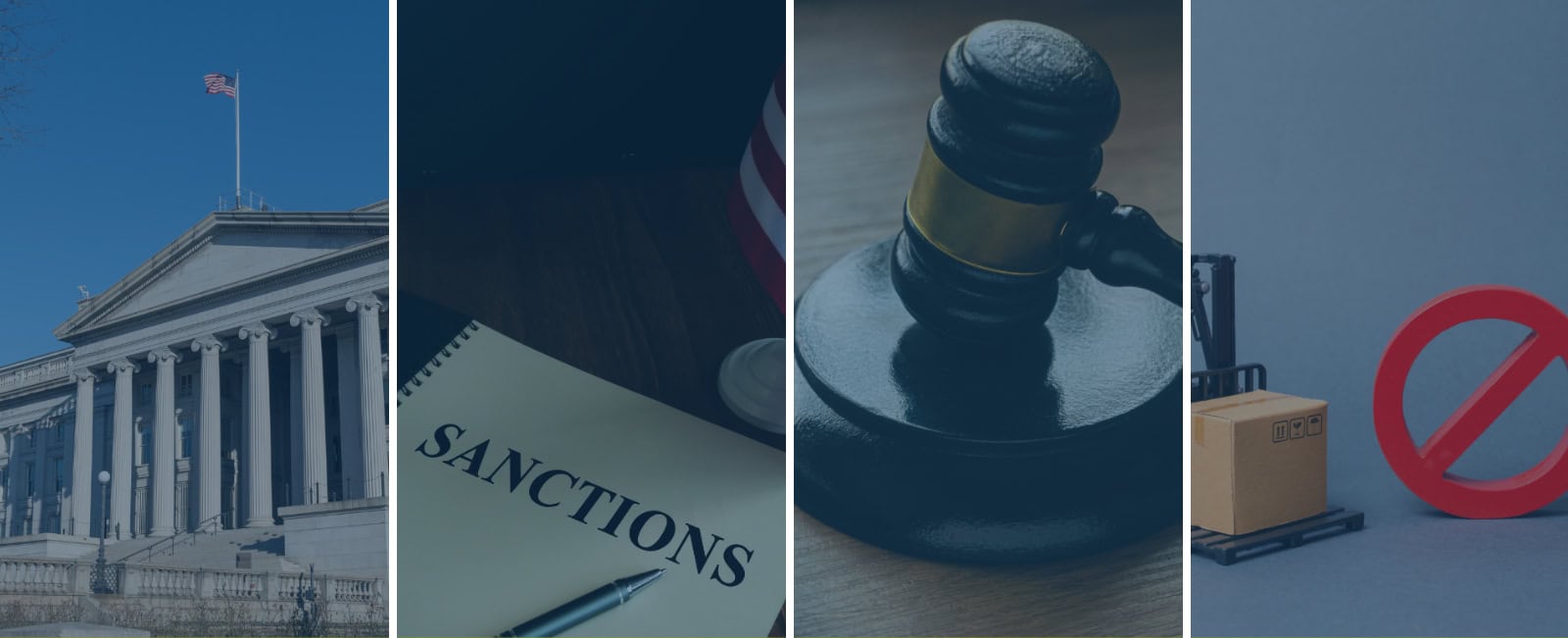1. OFAC Announces New Russia-Related Sanctions, General Licenses, and Guidance
The Office of Foreign Assets Control (OFAC) has released several updates related to Russia. These include a new determination under Executive Order 14071, which prohibits certain information technology and software services.
OFAC has also issued various Russia-related General Licenses:
- General License 6D: Permits transactions related to agricultural commodities, medicine, medical devices, replacement parts, software updates, the COVID-19 pandemic, and clinical trials.
- General License 8J: Authorizes transactions related to energy.
- General License 25D: Allows transactions related to telecommunications and certain internet-based communications.
- General License 98: Permits the wind-down of transactions involving entities blocked on June 12, 2024.
- General License 99: Authorizes the wind-down of transactions and certain transactions related to debt or equity, or derivative contracts involving MOEX, NCC, or NSD.
- General License 100: Allows certain transactions related to debt or equity or the conversion of currencies involving MOEX, NCC, or NSD.
Additionally, OFAC has released eight new and ten amended Frequently Asked Questions (FAQs) concerning Russia. An updated Compliance Advisory has been published to guide foreign banks on Russia sanctions risks.
2. BIS Makes Changes to Russia and Belarus Sanctions Under Export Administration Regulations (EAR)
The Bureau of Industry and Security (BIS) has revised sanctions on Russia and Belarus under the Export Administration Regulations (EAR). This final rule expands export controls on items subject to Russian and Belarusian industry sector sanctions and imposes a “software” license requirement for certain EAR99-designated software destined for these countries. It also narrows the scope of commodities and software eligible for export under License Exception Consumer Communications Devices (CCD).
To improve clarity and compliance, the rule consolidates Russian and Belarus sanctions into a single section while retaining relevant regulatory supplements. Additionally, it adds five entities and eight addresses to the Entity List, affecting destinations in China and Russia due to actions against U.S. national security or foreign policy interests. Further amendments confirm criteria for revising, suspending, or revoking EAR license exceptions and clarify the control status of fasteners under the sanctions.
Source: 2024-13148.pdf (federalregister.gov)
3. BIS Imposes Penalty on a Communications Solutions Provider Texas Company to Resolve Alleged Violations of the Antiboycott Regulations
The Bureau of Industry and Security (BIS) fined a provider of secure communications services $44,750 for three violations of the antiboycott provisions under the Export Administration Regulations (EAR). This Texas-based satellite communications company, self-reported the violations and cooperated with the investigation, which led to a reduced penalty.
The violations occurred when the company provided information about its business relationships with boycotted countries and failed to report a request to participate in a restrictive trade practice. Specifically, during a 2019 trade show in Kuwait, the company submitted a commercial invoice certifying that its goods were not of Israeli origin and were not manufactured by a company on the “Israeli Boycott Blacklist.” This action violated Sections 760.2(d) and 760.5 of the EAR.
4. U.S. BIS Imposes $285,000 Penalty to Resolve Violations of Unlicensed Re-Exports to Russia by Turkish Aviation Company
The U.S. Bureau of Industry and Security (BIS) fined Turkish aviation company $285,000 for violating the Export Control Reform Act of 2018 (ECRA). In October 2023 and January 2024, the company flew a U.S.-origin Gulfstream aircraft into Russia for private charter flights without the required BIS license. These flights were controlled by Russian nationals, which did not meet the criteria for a license exception and thus violated Section 764.2(a) of the ECRA.
Following Russia’s invasion of Ukraine, BIS implemented strict export controls to limit Russia’s access to technologies and luxury goods. Effective February 24, 2022, aviation-related items to Russia required a BIS license, and effective March 2, 2022, aircraft linked to Russia or Russian nationals were excluded from license exception eligibility. The company admitted to the violations as part of the settlement agreement with BIS.
5. Commerce Department Denies Export Privileges of Package Forwarding Company
The U.S. Bureau of Industry and Security (BIS) has issued a three-year denial order against a package forwarding company in Portland, Oregon, prohibiting the company from participating in any exports under BIS jurisdiction. This order follows the company’s repeated violations of the Export Administration Regulations (EAR) and failure to correct past compliance issues.
Previously, the company had settled with BIS in 2021 for unlicensed exports of riflescopes to China and the UAE, agreeing to a suspended denial order and to improve its export compliance program. However, an audit revealed 176 violations related to Electronic Export Information filings and inadequate record-keeping. Furthermore, despite warnings, the company exported an item to China without the required license in November 2022. Due to these continued violations, BIS has now activated the denial order.



